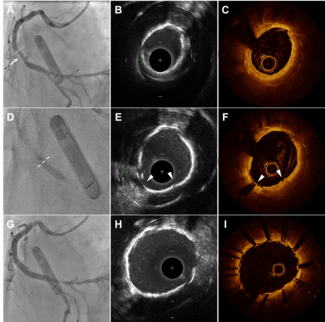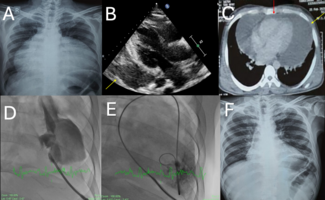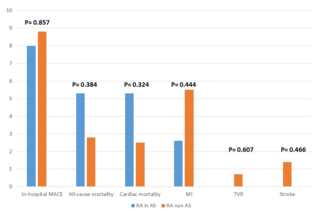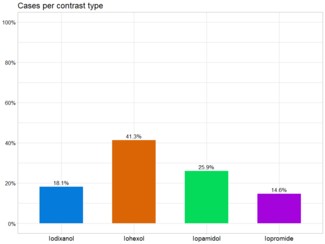Here Comes the Sun: Physician Relationships With Industry and the Sunshine Act
For several years now, physicians, professional societies, and the pharmaceutical and device industries have been concerned about a part of the Affordable Care Act called the Sunshine Act. What is it? Born out of a belief that physicians may be unduly influenced by industry relationships, two congressmen constructed a bill to mandate public reporting of any and all direct and indirect payments to physicians. Citing data that 83% of physicians received gifts of some kind, and 28% received payments for professional services such as consulting or research, the implication was that all such payments come at a moral price — one that might adversely influence how we treat our patients.
Looking back on my career, there is no doubt that I have had many relationships with industry. As a trainee, I remember being brought lunches, going to educational conferences, having medical textbooks sent to me, and attending symposiums and research competitions, all sponsored by industry. I also remember getting cheap pens that lasted a couple weeks and attending speaker programs, often at restaurants I could never have afforded. As I now reflect back with the hindsight of experience, I am certain none of these relationships influenced me in any negative or inappropriate way. The ethical standards of becoming or being a doctor are so high that a textbook, meal, or trinket could never influence how one takes care of patients — and at least in my case, it most assuredly did not. It is, to be blunt, offensive to think physicians could be “bought” for the price of a plastic pen.
As an attending now 10 years out of training, my relationship with industry has evolved. I no longer speak or attend industry-sponsored dinners, but do participate in national advisory boards and on a number of FDA-approved device trials. In addition, I work with industry to sponsor CME conferences that educate physicians. I receive no financial direct payment, instead opting to either work pro bono or send all payments directly to a known charity, and all research funds are held by the hospital and disbursed for research purposes only. Most importantly, I am proud to do so, and believe that these industry partnerships make important and highly ethical contributions to patient care.
So, how will all this play out in the Sunshine Act? Will this have a chilling impact on legitimate activities and partnerships, or will the medical system adjust to new realities and move on? Under the ruling, all manufacturers must report direct or indirect payments to physicians; for direct payments, this includes the high-dollar speaker programs as well as the low-dollar (and usually trivial) lunches, pens, and other minor gifts. It also includes payments for relationships that in my opinion are quite valuable to society, such as national advisory boards. Direct payments that are clearly related to unbiased (CME) physician education thankfully will be excluded. From an indirect payment standpoint, directing compensation to charities or payments for conducting research will also be reported.
My personal opinion is that direct and sizable payments are potentially harmful, as there is the possibility to modify physician behavior, and thus should be reported (or outright discouraged). However, indirect payments should not be reported or discouraged. If I consult for a company and tell them to send all payments to charity, without any of it coming into my hands or being placed in my name, does that constitute an improper relationship that the public is interested in? No! If I bring a research trial to my hospital, one that allows access to cutting-edge therapies years in advance of commercial release, and those payments for enrollment are held by the hospital and usable only when necessary for expenses related to trial conduct, does society truly care about knowing? Again I would say no. Patients want to know — and should know — about direct payments like monies for consulting, ownership, royalties, or speaking on behalf of companies, especially when the dollar amounts are high.
All this being said, there is nothing wrong with transparency in physician and industry interactions, as long as the public is educated on which relationships are potentially harmful, which are of little consequence, and which are not only acceptable but probably vital. Unbiased third-party physician education so we can continue to stay up to date and deliver high-quality care, cutting-edge research that brings needed technology and drugs to the population, and high-level consulting and advising that allows industry to remain vibrant, are all examples of relationships that should not only remain but be nurtured.
So, as the song goes, “Here comes the sun. And I say - it’s all right!” However, the caveat is that relationships with industry should not have a blanket negative connotation. Ideally, one would eliminate indirect payments entirely from the reporting structure, as reporting these would be of little value, and indeed potentially quite harmful, as it creates fear amongst both physicians and industry partners that might hinder appropriate collaboration. Alas, this modification is not likely to occur, especially at this late stage — but something we can lobby for as the regulations roll out and are discussed.
For now, if we are to report all types of relationships, then it should be both a denouncement of those with the most potential for harm, such as direct high-dollar payments, and a celebration of those that have brought our field to its pinnacle, such as the collaborations in education, research, and innovation. As physicians and leaders of professional societies, we must work to make sure the public is aware of the intricacies of these relationships, and why we may elect to continue the important ones going forward. Indeed, some of these relationships can and have served the public better for years than public reporting ever will.
________________________________
Srihari S. Naidu, MD, FACC, FSCAI, FAHA, is Director of the Cardiac Catheterization Laboratory, Interventional Cardiology Fellowship Program and Hypertrophic Cardiomyopathy Treatment Center at Winthrop University Hospital, Mineola, New York.


















